Are trail running shoes good for winter? In a word, definitely!
A quality pair of trail running shoes will keep you moving briskly all through the colder months – no matter what surface you run
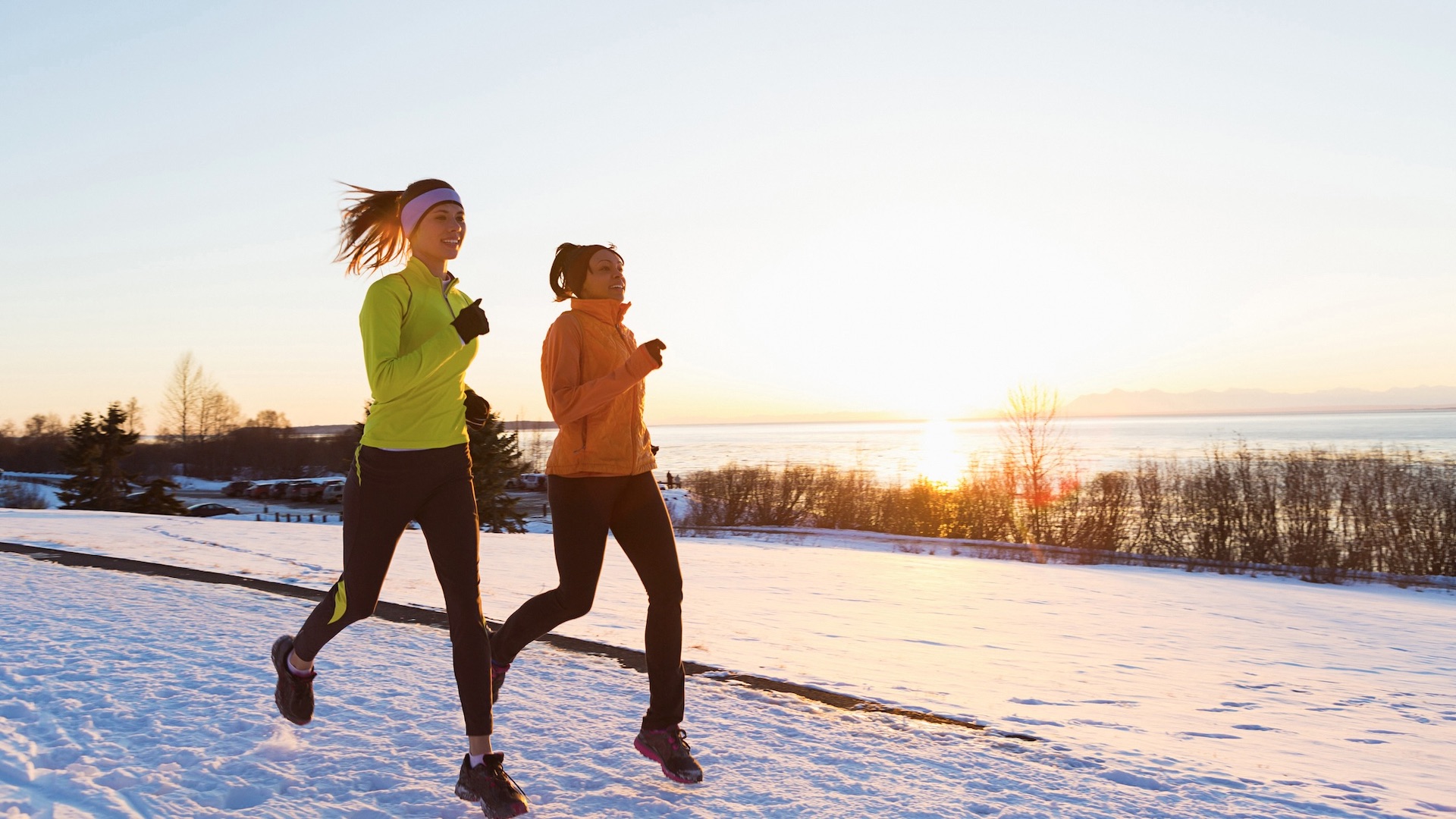
All the latest inspiration, tips and guides to help you plan your next Advnture!
You are now subscribed
Your newsletter sign-up was successful
At its best, winter running can be truly magical. Dreamy, glistening white landscapes, the crunch of fresh snow underfoot, vivid blue skies and visibility for miles and miles. At it's worst, it can be a real suffer fest, throwing up horizontal sleet, slushy mud underfoot and leaving you soaking wet and cold to the bone. Getting kitted out is obviously more complicated and choosing the best running shoes for the terrain and changeable conditions can also be tricky.
So, are trail running shoes good for winter or can you still wear road running shoes on snowy ground? Our running experts have done the legwork on these commonly asked questions to allow you to find the perfect pair to keep your training going through the most challenging season.
Are trail running shoes good for winter?
Trail running shoes are great for winter running: they're better suited to slick and snowy ground than road running shoes, while many trail shoes have deep lugs in the outsole, designed for traction on muddy terrain. These deeper lugs provide much better grip when running on snow than the outsoles on road shoes. Trail shoes also tend to be more protective than road running shoes.
That's not to say they're perfect for every kind of winter running and if you're heading into the mountains, you may want to consider specifically designed winter running shoes and traction devices like microspikes.
Meanwhile, road running shoes are still fine on tarmac during winter when there's no snow or ice.
Meet the experts
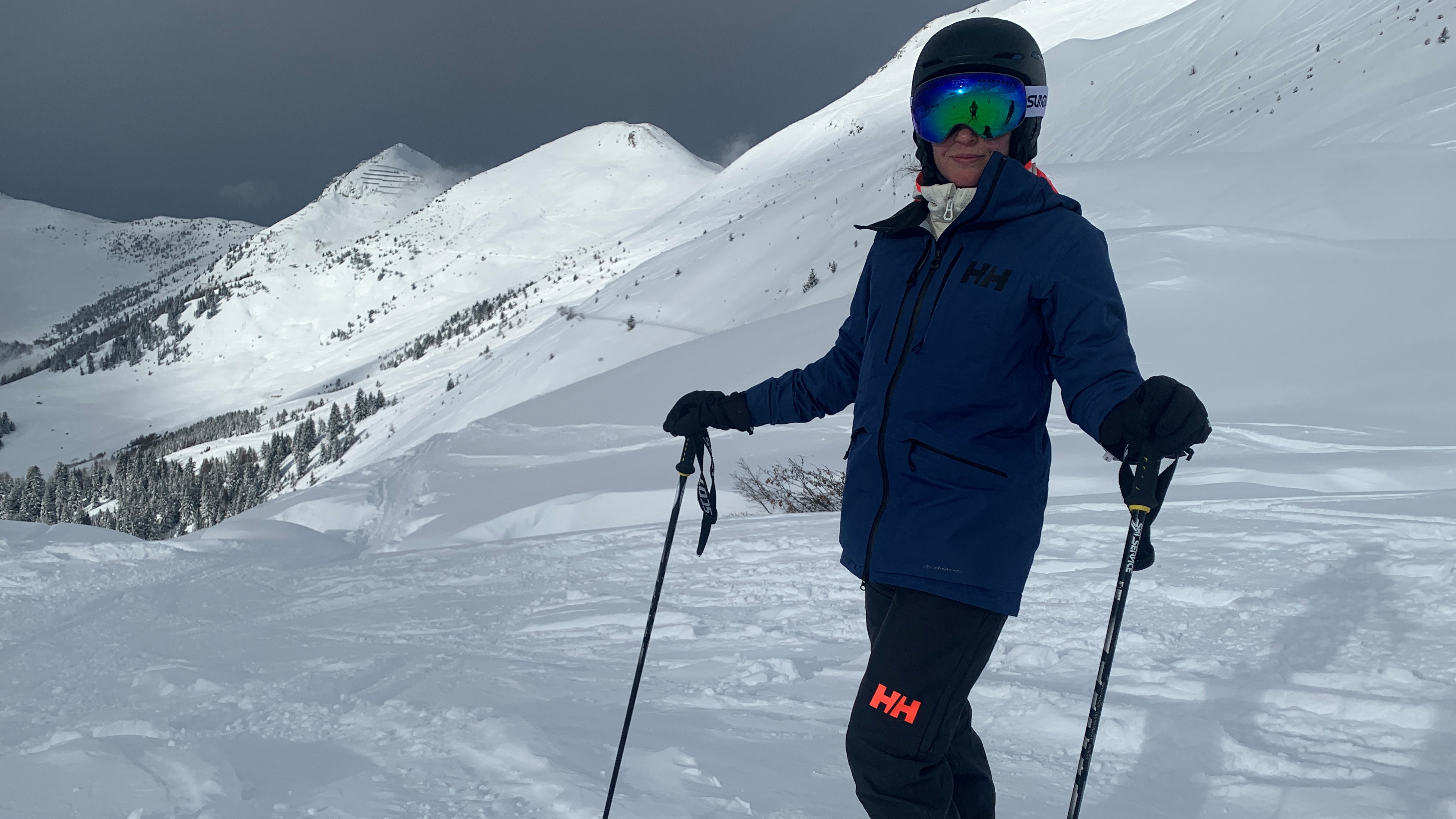
Julia is no stranger to cold winters. She grew up just south of the Scottish Highlands, which can be wild to say the least during the freezing season. She moved to the US for university, where her love for the fiercely beautiful winter outdoors only grew. Now back in Scotland, Julia enjoys few things more than a brisk winter day's run.
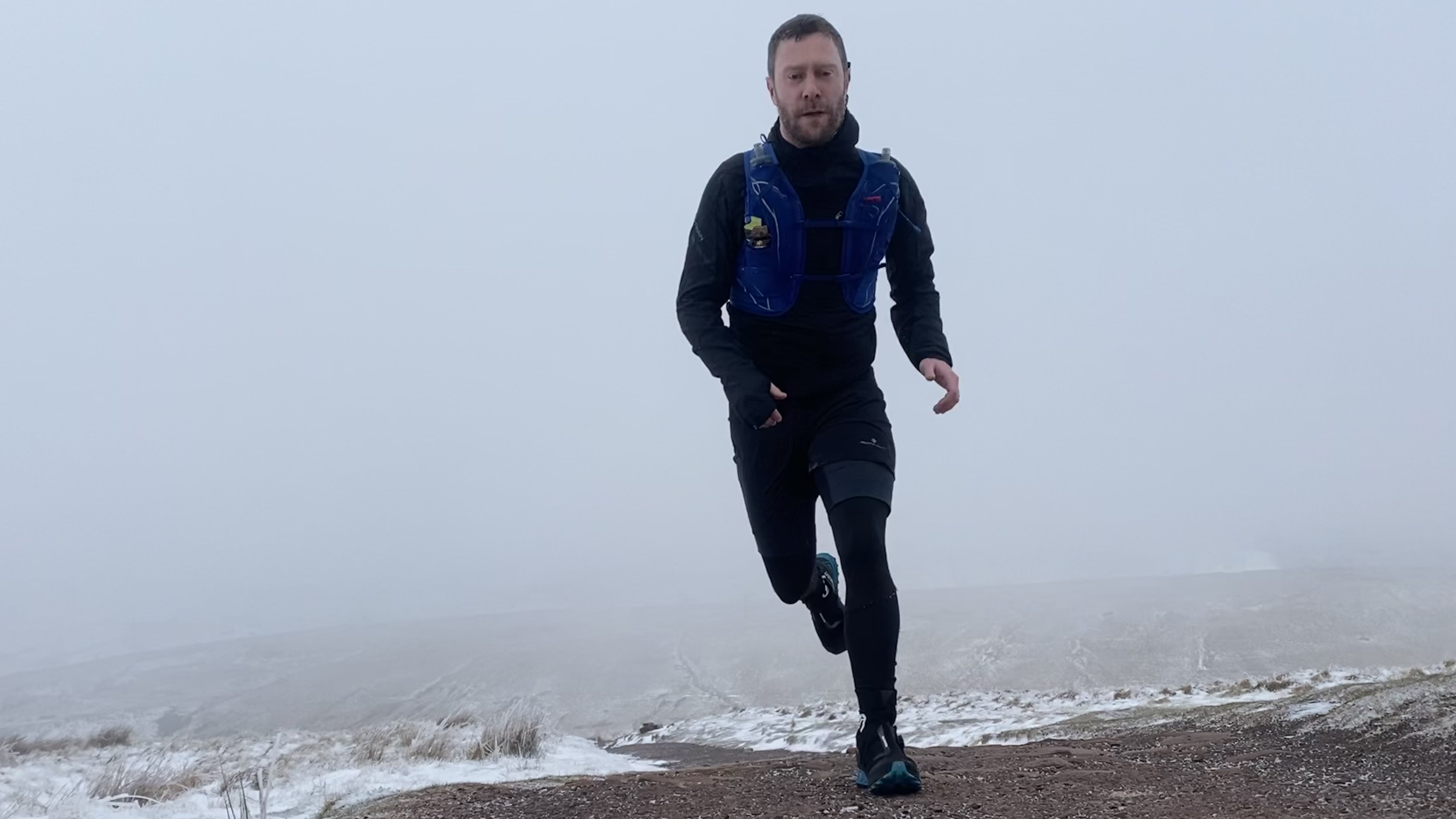
Alex is passionate about the mountains, particularly in winter, and running in them is one of his favorite ways to express this love. Among his trail running exploits are a marathon up South Wales' highest peak, a round of all fifteen 3,000-foot peaks in Eryri (Snowdonia) National Park and the legendary Ring of Steall Skyrace in the Scottish Highlands.
Today's best deals
The challenge of getting out in winter
- Decreased daylight hours, freezing temperatures and snow and ice underfoot all make winter more challenging
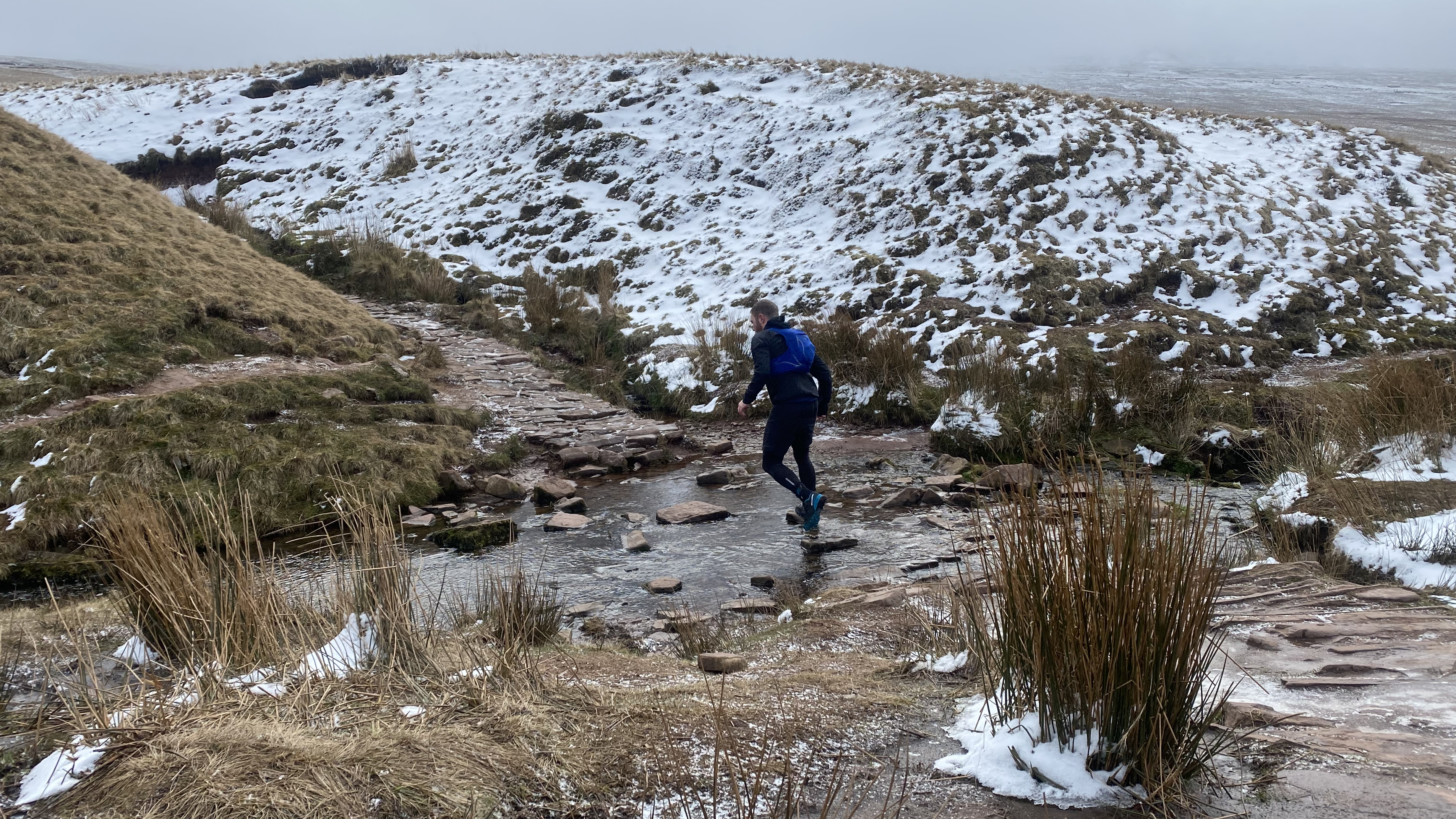
With decreased daylight hours and freezing temperatures, it's fair to say that getting out for a run in the cold months takes more effort than in the balmy days of summer. Throw in the additional challenge of slick, muddy or snowy surfaces and its no wonder the desire to exercise can drop by as much as a third during winter, according to some studies.
Road runners and trail runners alike face this challenge, but it doesn't have to be that way. With the right footwear and a few winter trail running hacks, you can power through all the way to spring, without so much as breaking stride. After all, winning running can be incredible, acquainting you with frozen wonderlands and providing a real sense of adventure.
All the latest inspiration, tips and guides to help you plan your next Advnture!
So, If you’re keen to avoid the tedium of the treadmill and looking at your footwear options, step this way...
Can you wear road running shoes in winter?
- Unless there's ice or snow underfoot, summer road shoes should be fine for winter
- The outsole of a road running shoe doesn't provide enough grip on icy or snowy surfaces
- If conditions are wet, you could wear waterproof socks or winter running gaiters
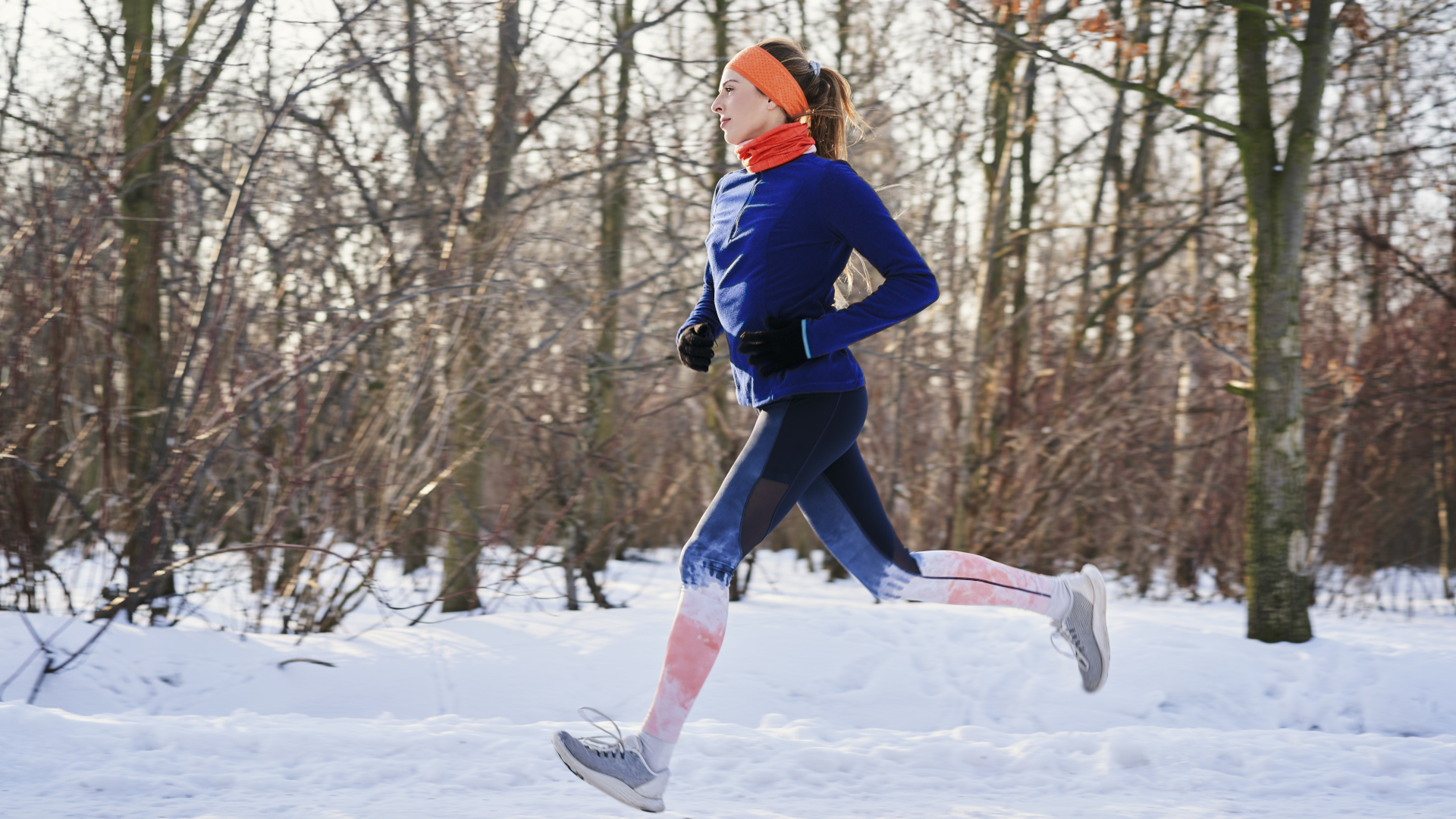
This all depends a bit on the running shoes and the severity of the winter, but assuming you’re talking about a lightweight pair of road running shoes, if it’s just cold weather and perhaps a bit of rain you’re looking at, you can probably just keep wearing the same shoes as you wore all summer. Your feet might feel a little cold for the first half mile or so, but as soon as you warm up they’ll recover. However, the chances are that the soles won’t provide enough grip for surfaces that are slick with slush, ice and snow.

In very wet conditions, however, road running shoes could quickly become saturated and your soggy running socks could start to rub, causing blisters. Ugh. To help with this, you could reinforce your shoes with some winter running gaiters that fit over your ankles to prevent water from entering. Another possibility is to wear waterproof running socks, which means your shoes can get as wet as they want while you’re splashing through puddles, but your feet stay dry.
If you want to run in your wet shoes again the following day, make sure to stuff them with newspaper when you get home and leave them out to air dry so they’re not totally waterlogged. Don’t put them on the radiator as this can destroy the adhesives over time and cause them to deteriorate faster.
Why are trail running shoes better for winter?
- The aggressive tread of a trail running shoe is better for uneven terrain
- Trail shoes have a more protective upper, shielding your feet from the cold and objects hidden in the snow
- Some trail running shoes are designed specifically with winter running in mind

Protection wise, I’ve been very impressed with the Scarpa Ribelle Run Kalibra G. Never did my feet feel like they’d been through the wringer.
Alex Foxfield on winter trail shoes
Let’s say, however, that you’re looking at a winter with close to or sub-zero temps, snow and ice. In that case, your road running shoes aren’t going to cut it. Unless you want to hit the hamster wheel, you’re going to want to invest in a pair of the best trail running shoes – and that’s even if you have no intention of getting anywhere near a trail and plan to stick to urban routes only.
The main reason trail running shoes make the best running footwear for winter is that they feature more aggressive tread meant for tackling uneven terrain. On slick surfaces, this translates into better grip, lessening your chances of nasty slips and falls. How deep you want your lugs to be depends on what you’re going to be running on, but if it’s snowy trails, think 5mm lugs, whereas if you’re running on slushy roads or mixed terrain, 3mm should suffice.
Trail running shoes also tend to be a bit burlier than road shoes, with sturdier uppers, reinforced toe boxes and sometimes integrated knit socks that are all in place to protect trail users from sharp rocks – these features can also provide a bit more protection from objects hidden by the snow and cold temperatures in winter.
This is particularly true of shoes designed specifically for rough backcountry running in snowy conditions. We've reviewed both the Scarpa Ribelle Run Kalibra G and the La Sportiva Cyklon Cross GTX, both of which are grippy, highly protective and feature an integrated gaiter to keep water out.
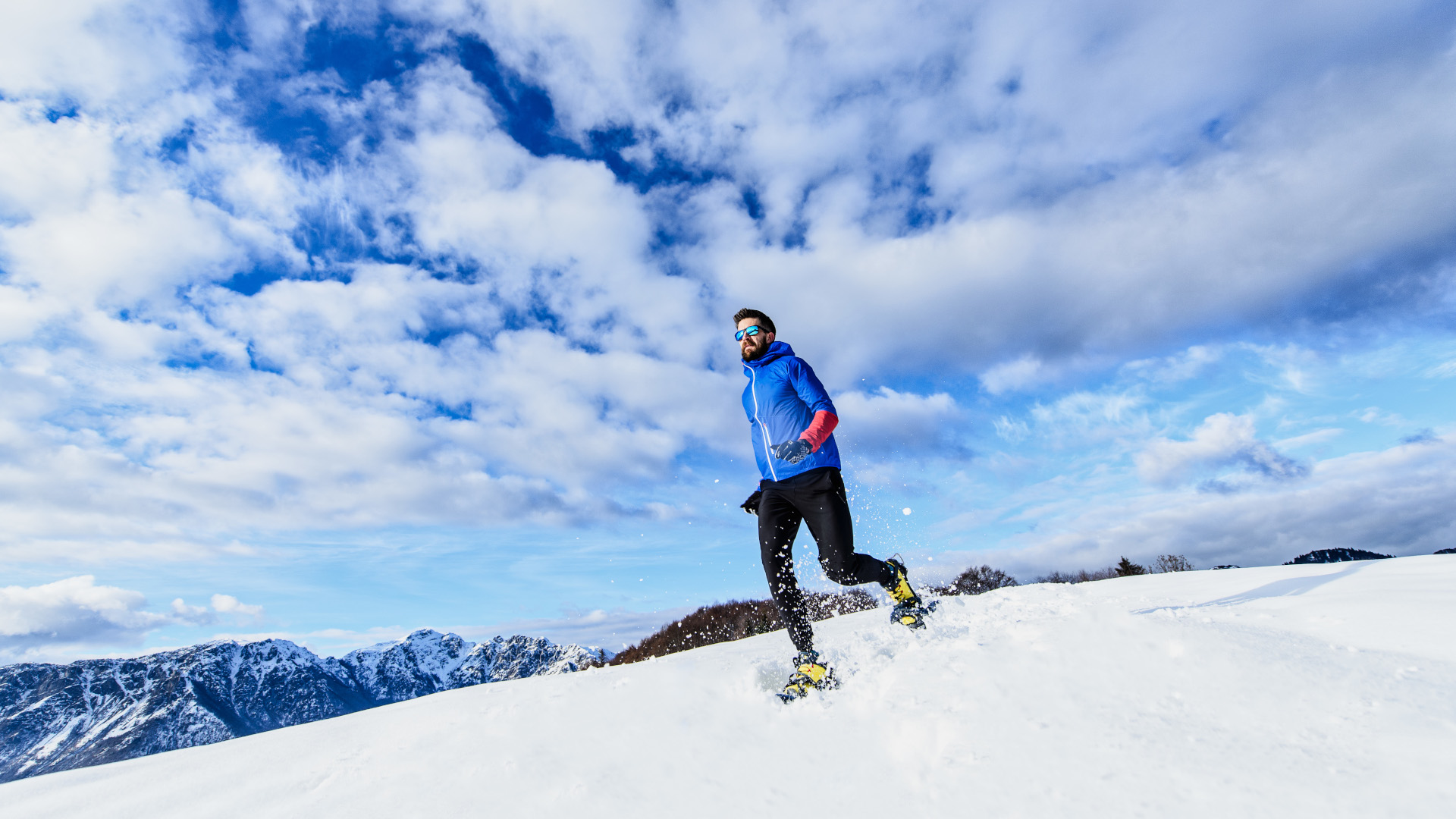
- There are waterproof versions of some trail running shoes too
- For very icy surfaces, Yaktrax, microspikes or running snowshoes will provide even greater traction
Trail running shoes can also come in waterproof versions where road shoes don't, which can be a major bonus, since as we already mentioned, wet feet can be a hindrance, especially if you’re running long distances. That said, your feet tend to get very hot when you’re running or you're not planning to run in deep, wet snow then you may want to forego this feature and opt for more breathability. You can again opt to use winter running gaiters, which will also help to keep out snow and grit from the snow plows if you’re on the roads.
Arm yourself with a pair of the best winter running shoes and layer a running jacket over the top and you'll be ready for a winter of fast adventures. If you’re going to be running on very icy or snowy surfaces, you’ll be safer using additional winter traction devices, such Yaktrax or Microspikes, or even running snowshoes for deep snow.
Does snow ruin shoes?
- Your trail shoes should be able to withstand snow
- However, salt can degrade your footwear, so wipe your shoes down afterwards if you're running on roads that have been gritted
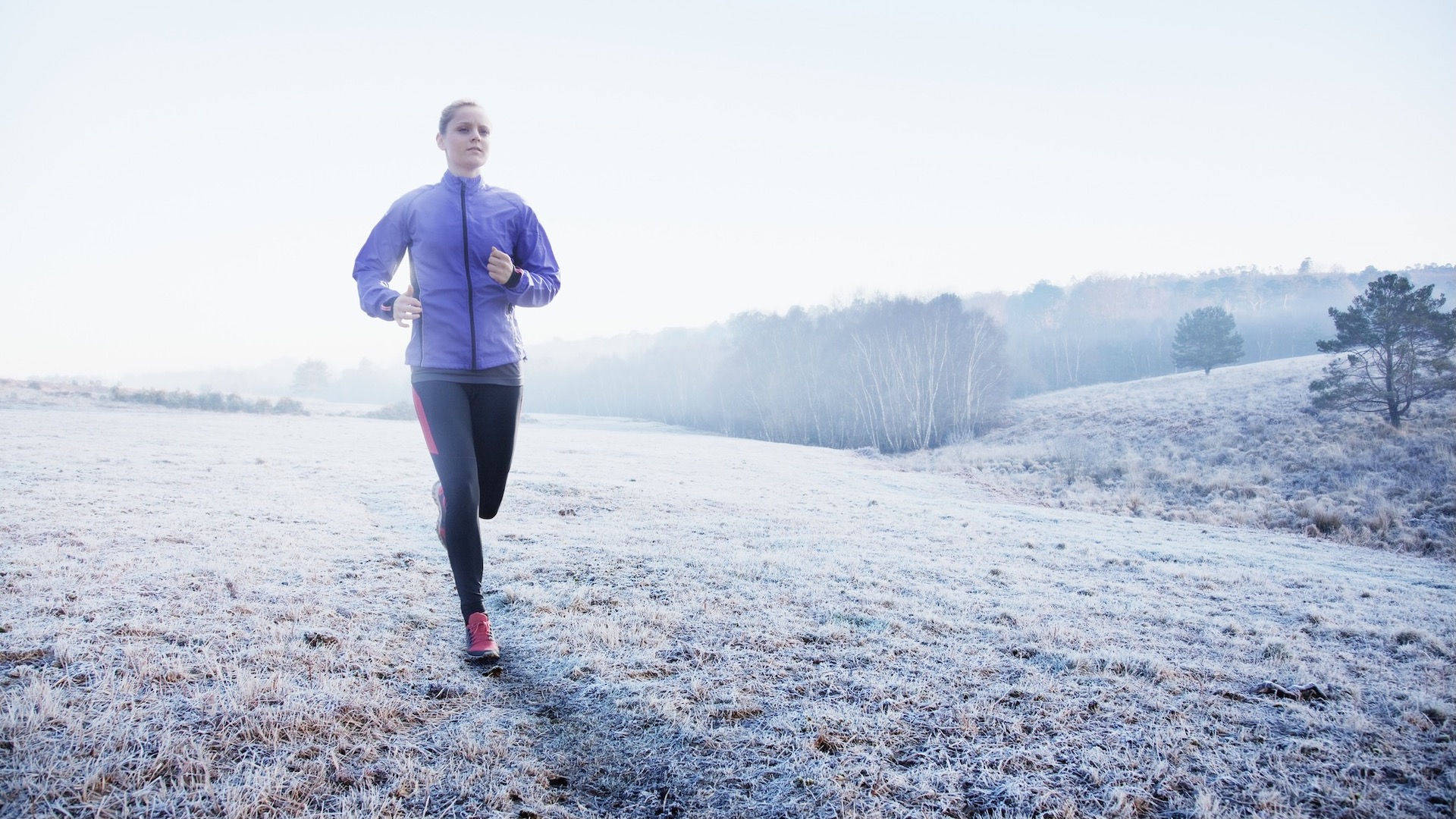
While snow might leave your suede boots and fashion shoes rather the worse for wear, your trail running shoes should withstand snow for as long as you’re going to be running in them (it’s generally suggested that you replace your running shoes every 300 - 500 miles). However, what can degrade your shoes faster than you might want (or at least leave them looking watermarked) is salt, which can be on the ground in abundance at this time of year. So if you’re road running, give your shoes a quick wipe down with a damp cloth when you return home.
Julia Clarke is a staff writer for Advnture.com and the author of the book Restorative Yoga for Beginners. She loves to explore mountains on foot, bike, skis and belay and then recover on the the yoga mat. Julia graduated with a degree in journalism in 2004 and spent eight years working as a radio presenter in Kansas City, Vermont, Boston and New York City before discovering the joys of the Rocky Mountains. She then detoured west to Colorado and enjoyed 11 years teaching yoga in Vail before returning to her hometown of Glasgow, Scotland in 2020 to focus on family and writing.

